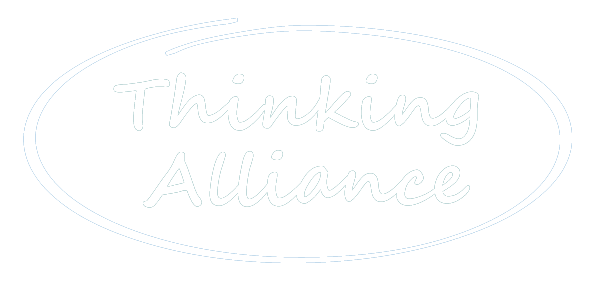
13 Nov Thoughtful leaders help us all thrive: let’s return the favour
Reflecting on my experiences as a leader and a leadership coach, I think there’s an approach to leadership which hasn’t been given enough recognition. I’m talking about Thoughtful Leadership. I think it’s a way of leading which can be incredibly effective – and if thoughtful leaders are given the opportunity to flourish, their organisations flourish too.
What is thoughtful leadership?
Let’s start from the top, with an explanation of what I mean by thoughtful leadership.
The online version of the Oxford English Dictionary suggests that thoughtful means “Absorbed in or involving thought. Showing careful consideration or attention. Showing consideration for the needs of other people.” And it suggests that leadership means “The action of leading a group of people or an organization.”
So a thoughtful leader is a person who skilfully combines thought and action. They know that there’s an optimal space in which to move forward and they continuously seek it out. They guard against over-thinking or under-thinking, aiming neither to act in haste nor to lose the moment by dithering. Thoughtful leaders grow by spending as much time developing their thinking skills as they do developing the skills needed for action.
How do thoughtful leaders help their organisations to flourish?
Thriving thoughtful leaders lead to flourishing organisations in many ways.
Thoughtful leaders think about why they do things so they can lead teams and organisations whose work adds real value. They see the rich connections between people, organisations, communities and the environment and act to strengthen them for the greater good.
Thoughtful leaders think about those around them so they can lead in ways that enable and inspire, and build resilience. They are aware of what their people need in order to do their best work and take action to secure it.
Thoughtful leaders think expansively so they can lead effectively when uncertainty and complexity are the norm. They consider intentions and possibilities in advance, act flexibly, responsively and creatively, and use reflection to learn and increase agility.
Ultimately, thoughtful leadership is vital. Because what’s the alternative? Thoughtless leadership. The kind of leadership which gives insufficient attention to wider or long-term implications. The kind of leadership which gives scant consideration to staff, suppliers or communities. The kind of leadership which chases its tail, spiralling blindly down to the lowest common denominator.
How can we help thoughtful leaders to flourish?
If thoughtful leadership is vital, we need to do all we can to help thoughtful leaders to flourish. Here are three thoughts to start us off.
- Let’s recognise that “quiet people have the loudest minds” as Stephen Hawking once said. We need to stop mistaking activity for action and recognise that a leader sitting deep in thought can be adding just as much value as the leader walking the floor with instructions for everyone they see.
- Let’s give our leaders time and space to think. We need to realise that a diary that looks like a barcode is more likely a sign of busyness than real productivity and that time away from the desk adds more value than time chained to it.
- Let’s put down our phones and think together. Instead of using communication devices and tools, let’s actually communicate so we can unlock the great thinking which emerges.
In my experience, many leaders aspire to be, and often are, thoughtful. But I also see every day leaders who are losing the battle to think well for themselves and their organisations. There is not enough recognition of the value that the thoughtful side of leadership brings nor enough support for our thoughtful leaders. Let’s see what we can do to change that, so that they can thrive and their organisations can thrive with them.

